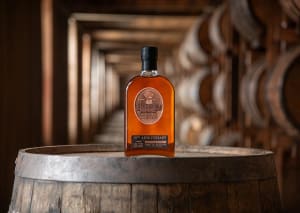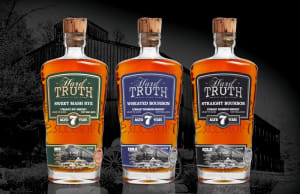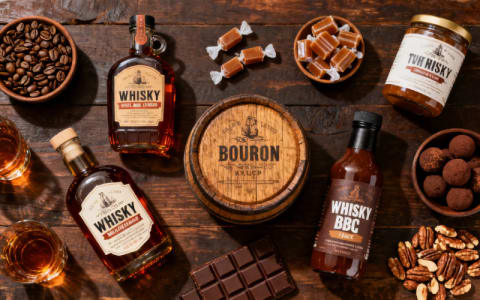MGP Ingredients, one of the largest whiskey producers in the U.S., is making significant adjustments to its production strategy in response to changing market dynamics. The Kansas-based company announced plans to scale back its whiskey production starting in 2025, as demand for American whiskey softens and inventory levels remain high across the industry. This shift reflects MGP’s intention to adapt to current market conditions while refining its business focus to better align with evolving consumer trends.
Decline in American Whiskey Demand and Elevated Inventory Levels
MGP Ingredients, known for producing notable brands like Remus Bourbon and El Mayor Tequila, is feeling the impact of a slowdown in the American whiskey category. CEO David Bratcher pointed to "softening American whiskey category trends" as a primary reason for the planned production reduction, noting that industry-wide inventory levels are particularly high. As a result, the company intends to "further lower our net aging whiskey put away" and "scale down our whiskey production" starting next year. The company also aims to “optimize” its cost structure to offset the impact of lower production volumes.
This decision follows a challenging financial period for MGP. During the third quarter ending September 30, 2024, the company reported a 24% drop in consolidated net sales, falling to $161.5 million. Its gross profit also decreased by 10% to $65.8 million, confirming earlier predictions of a downturn. In October, MGP issued a profit warning and adjusted its full-year sales outlook downward, now expecting sales between $695 million and $705 million, down from the original forecast of $742 million to $756 million. The company’s adjusted earnings per share estimate was also revised, decreasing from $6.12 to $5.65.
Impacts on MGP’s Business Segments: Branded Spirits and Distilling Solutions
MGP’s production adjustments come at a time when various segments of its business are experiencing varied performance levels. The company's Distilling Solutions division, which supplies spirits to other brands, saw a substantial 36% decline in sales, falling to $71.9 million. The Branded Spirits segment, which includes well-known labels like Daviess County Bourbon, Penelope Bourbon, and Rossville Union Rye, experienced a more modest 6% decline, with sales totaling $62.6 million.
Interestingly, the company’s premium-plus category—representing high-end products likely priced at $100 and above—experienced a small increase in sales, rising by 1%. This uptick indicates that even as broader demand for American whiskey cools, there remains a market for premium offerings, particularly in the branded spirits division. MGP is increasingly focusing on branded spirits as a core growth area, which may suggest a shift away from its contract distilling operations that supply products for other companies.
Strategic Focus on Branded Spirits for Long-Term Stability
In recent years, MGP has invested in its branded portfolio, acquiring Lux Row Distillers, a Kentucky-based producer of popular whiskey brands like Ezra Brooks and Rebel, in 2021 for $475 million. The acquisition of Penelope Bourbon in May 2023 further strengthened its portfolio, adding another well-regarded brand to its lineup. These moves are part of MGP’s broader strategy to become a leader in the branded spirits market.
While the company will continue to support its contract distilling clients, Bratcher’s statements suggest a growing emphasis on developing MGP’s in-house brands as a means of stabilizing and eventually boosting revenues. He expressed optimism that MGP’s focus on branded spirits could “deliver attractive organic growth” over the long term, even as inventory constraints may pose challenges in the near future.
External Pressures and Broader Industry Trends Affecting the Whiskey Market
The downturn in American whiskey demand is not unique to MGP. Other major players in the spirits industry, including Diageo, Moët Hennessy, and Remy Cointreau, have reported similar challenges over the past year. A combination of economic factors has created a complex environment for spirits producers, particularly those specializing in whiskey. Trade tensions, inflation, and post-pandemic shifts in consumer spending patterns are all contributing factors.
In addition, the American whiskey market has been affected by changes in consumer preferences. Agave-based spirits, like tequila and mezcal, recently overtook American whiskey in sales for the first time, highlighting the shifting tastes among U.S. drinkers. Additionally, some producers are still facing the lingering effects of tariffs imposed by the European Union on American whiskey, originally enacted in response to U.S. tariffs on steel and aluminum. The potential re-imposition of these tariffs could further dampen demand in international markets.
Competition within the whiskey sourcing market has also intensified. MGP, once the dominant source for smaller brands looking to buy pre-aged whiskey or contract distill, now faces competition from companies like Bardstown Bourbon Company and other distilleries offering similar services. The rise of alternative sources has contributed to an oversupply of whiskey, adding to the already elevated inventory levels in states like Kentucky, Tennessee, and Indiana.
Financial Forecasts and Long-Term Plans
Looking ahead, MGP remains cautiously optimistic about its Ingredient Solutions segment, which provides food ingredients alongside its spirits portfolio. Bratcher indicated that the company expects this segment to perform more strongly in 2025, despite the current challenges.
The company’s recent actions signal a strategic pivot towards building a more resilient business model focused on branded spirits and premium products. By scaling back production and concentrating on its in-house brands, MGP aims to mitigate the risks associated with fluctuating demand in the American whiskey market. Bratcher believes that these changes will not only help navigate the current downturn but also enhance the company’s competitive positioning for the future.
As the American whiskey market grapples with an oversupply and shifting consumer preferences, MGP’s approach reflects a broader trend within the spirits industry. Many producers are scaling back production and realigning their portfolios to focus on core brands. The hope is that by adapting to these market changes, MGP can continue to thrive in a challenging environment, bolstered by a strong portfolio of branded spirits that appeal to a loyal consumer base.




